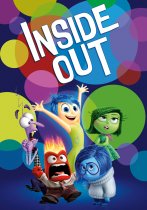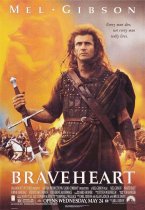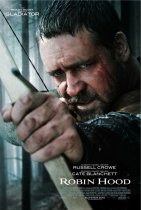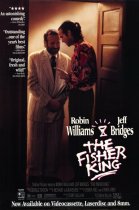Logan (2017)
Synopsis
Set in an alternative 2029, when mutant-kind has all but vanished from the world, an ailing Logan is shocked to discover the existence of a young mutant who bares a striking resemblance to the adamantium-clawed anti-hero. Consumed by despair, his powers waning, the Wolverine must summon the strength to embark on one last hero’s journey – to protect his daughter and the future of a world blighted by corruption.
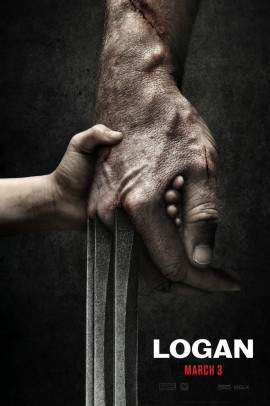
| Genre | Action, Drama |
| Production year | 2017 |
| Director | James Mangold |
| Male actors | Hugh Jackman, Patrick Stewart |
Fighting for Meaning
by Kevin Latham
A Rude Awakening
Groggy and bleary-eyed, we are reintroduced to Logan as he is stirred from a drunken stupor by the activities of a hyper-macho Latino street gang. In the process of depriving Wolverine’s working limo of its chrome-plated hubcaps, Logan attempts to appeal to the hoodlums’ sense of reason.
Grizzled, grey-haired and unsteady on his feet, however, it is plain that this is not the Wolverine we know. Little to our surprise, Logan’s words fall on deaf ears, and a member of this impulsive rabble (a tribe of sorts, but one lacking any of the nobility of our ancestral communities) blasts our debilitated anti-hero with a shotgun.
Well, before long the volatile ex-X-man is doing what he does best – though it’s made patently clear to us that he’s nowhere near as capable as once he was. The movie also wastes no time in demonstrating that this outing promises to be an infinitely darker affair than its predecessors – pulling no punches as it graphically depicts Logan rending flesh and cleaving bone.
Devoid of empathy, patience, temperance or honour, this immature mob of uninitiated men is ultimately no match for the elder Logan – even in his depleted state. Being a metaphor for the actualisation of human potential, his mutant abilities grant him power that these poorly developed half-men can only dream of. Nonetheless, it’s obvious that all is not well in Logan’s world – a sickness has infected it, and that power is waning.
Over subsequent scenes the effects of this affliction are expanded upon – demonstrating just how dire the situation has become. We soon hear from the callous but charming mercenary, Pierce (a jackal, perhaps) that the tiger – the epitomal hunter that for millennia has acted as an alchemical vessel for man’s most primal instincts – is dead, extinct, lost to the world. Pierce has been dispatched to retrieve a precious item at the behest of the shadowy Transigen corporation – and afforded the freedom to pursue his mission by any means necessary, it seems that vast private business empires can now openly oppress populations by use of military force.
In short order, we are transported – at Logan’s side – to the makeshift ward of his aged and mentally compromised mentor, the once great Charles Xavier. In archetypal terms, Professor X most keenly embodies the characteristics of Magician and King – being blessed with almost limitless telepathic abilities and a fatherly capacity for leadership. Much, however, has changed for the wheelchair-bound professor, and rolling around in a grim and gloomy overturned water tank, it is evidently not just Logan’s power that has dwindled.
The Kingdom of Man
Holed up behind his steely castle walls, the just monarch’s kingdom (mutant-kind) has rescinded – besieged by the dark forces that populate this mythological landscape. Much like Theoden in Tolkien’s Two Towers – Xavier is gripped by a magical malady; a torturous living death that has suppressed his wits and robbed him of his authority. Unlike in Theoden’s case, this virulent curse is not explicitly portrayed as being the work of the dark power blighting the Professor’s realm – but the subtext is the same – black forces have bested the king, and in his absence, his subjects have suffered and his lands have succumbed to a terrible spiritual blight.
https://www.youtube.com/watch?v=RXxyCMhBhFw
Indications of his power remain, however – echoes of a fading past which suggest that his star still has a little light left to give. The water tank in which he is housed – rusted and obsolete – is a not-so-subtle nod to the colossal computer, Cerebro, which served to magnify Charles’ power in his former life.
It is appropriate then that in this dark mirror-verse – a contorted perversion of the X-realm we have come to know and love (well, if you judge the franchise on the basis of its better efforts!) – this comparative container should inhibit his abilities. The fact that they require inhibiting at all, however, demonstrates that Xavier remains a force to be reckoned with – albeit one that lacks direction and constructive expression.
This is further emphasised by the depiction of the tank’s interior. Eroded by rust, the container’s outer shell allows slivers of sunlight to blaze through its ruptured shell – mimicking the night sky, supporting a canopy of glittering stars.
This is significant because the heavens – the stars, the sun and the elemental fire that sustains them – have historically been so closely associated with masculinity; a trend that repeats itself again and again, even amongst cultures that have little connection to one another. The Egyptian God, Ra, and the Greek, Apollo, are two such prominent examples of manly sun-kings. The attribution of masculine qualities – such as the pursuit of academic knowledge – to the sun, the sky and the heavens (as opposed to the more intuitive, feminine traits ascribed to the earth and the moon) can, however, also be observed within the mythological traditions of the Chinese Taoists, various Buddhist sects and the Aztecs.
Once we identify the significance of this symbolic thread, we can also see that it is weaved throughout the tapestry of the movie. This world – defiled by a vitriolic, poorly realised and hopelessly unbalanced masculinity – is scorched by the stifling desert sun; whilst for much of the film, Logan’s last remaining hopes and dreams rest upon his ability to secure a ‘Sun-Seeker’ – a vessel that will allow himself and Xavier to sever their ties with the land (now seemingly bereft of feminine influence) and sail off into the sunset.
The Warrior Sleeps
Returning to the scene in the water tank, the melancholy mood continues unabated, with the confounded Xavier lamenting and resisting the medical treatment administered by Logan:
“Who are you?”
“You know who I am”
“You’re the man who puts me to sleep”
“We could both use some sleep”
…And who could blame Logan for wishing to while away the time he has left in a stupefied and soporific state? The desire to be drunk, drugged, or otherwise sedated, when tormented by such ugly memories and faced with the prospect of a desperately bleak future is entirely reasonable. It is, in fact, arguably the zeitgeist of our times – and a very natural response to an existence that appears to offer us little in the way of purpose and few opportunities to develop deep, lasting reciprocal connections to one another.
We see, however, that despite his considerable psychological impairment, Charles – the benevolent wizard king – retains the archetypal wisdom befitting his position. He understands implicitly that sleep is not a solution; that the only course of action available to them – the only way to restore their kingdom to its former glory – is to wake up.
What follows is a demonstration of the raw power that the Magician still possesses – as he suffers a seizure-induced psionic episode of terrifying proportions – nearly killing Wolverine and his trusted aide, Caliban, in the process. Charles remains oblivious of the threat that he now poses to others, but he demonstrates that he continues to retain insight into other matters. Not only has he become aware of the existence of a new mutant, but he also sees how far Logan has fallen by repressing his better nature, chastising him for this abdication of responsibility.
Xavier’s scathing critique of Logan is quite justified. We’ve already recognised that our protagonist’s psychological profile is vastly more developed than that of the impulsive, self-serving and emotionally-stunted individuals representing either the corporate-military or gangland crews; but that does not mean that Logan is the complete package – a fully individuated and initiated man.
For all of his experience, his successive acts of heroism and the many bitter pills he has been forced to swallow over the course of his unnaturally long life, Logan is still, in many ways, little more than a boy. Like the man-children his character needles with a protracted claw, the Wolverine flees in fear of any avoidable attachment – and the emotional and practical burdens that will inevitably accompany them.
This inclination is undoubtedly a response to the losses he has suffered since his earlier adventures with the X-men – reversing much of the progress that he made under the attentive tutorage of the paternal professor. Together we have watched, over a succession of former X-outings, as he reluctantly accepted responsibilities he would rather avoid – as he tentatively took his place within a tribe that called for his service – and even as he sheltered a series of proteges under his wing; aiding in their own initiation so that they might realise their full potential. He embraced his destiny and took his rightful place as an elder amongst his clan. Now, however, all of that is gone – so much dust, scattered to the wind – like the hot desert sands that blanket this semi-apocalyptic hinterland.
Naturally, we feel sympathy for his plight – he has suffered the horrors of war and the indignity of mutilation, he has been the subject of scientific experiments and faced down genocidal efforts to extinguish his race. He has lost the woman that he loved – both to another suitor and to death – and many of the memories that define him as a man. Yes, Logan has more reason than most to shirk responsibility and spurn familial attachments. In the grand, archetypal scheme of things, however, none of this matters. The Wolverine is half in, half out – his initiation – his marriage to responsibility, has been annulled.
Father and Son
Ah, you say – but what of his relationship to Xavier? Indeed, the way has been prepared for him – as it is for each of us. Logan’s commitment to Charles is touching, but nonetheless, there remains a selfishness to the obligation that he feels to care for him. He is like an embittered lover – the teenage runaway who declares absolute devotion to the object of his affection – but to no other. It’s just the two of us against the world, babe – the rest can go hang.
What’s more, as we see later, Charles continues to provide Logan with a sense of stability – a sense of purpose – without which, he truly has nothing. So, whilst there’s no reason to doubt that the devotion Logan shows to his ailing mentor is genuine, this still doesn’t suggest that the wounded Wolverine is willing to accept much in the way of responsibility.
This point is emphasised further by his relationship with Caliban. Logan doesn’t appear to lack affection for his sallow-skinned companion (he’s certainly incensed when he believes that Pierce has killed him) – this affection simply doesn’t seem to crystallise into any discernible form of support. As best as we can tell, he has made no provision for the weaker Caliban – despite the fact that his service to Charles has been invaluable. As Caliban states (in a line wonderfully delivered by comedy stalwart, Stephen Merchant):
“You’re saving to buy a Sunseeker. Sun is the key word – I hardly see myself cowering below decks like nosferatu, do you? Folding your underpants and making him spotted Dick”
The terminally sun-adversed mutant will be left to fend for himself – sink or swim, persist or perish.
Logan – every bit the Warrior by nature – is not fulfilling this role because he has repressed his internal Lover, which is essential to elevate a fighter beyond acts of self-serving barbarism. His present relationship with Charles is extremely interesting, however, in that it demonstrates how life surreptitiously gifts us with events that prepare us for the challenges to come. Reduced to a childlike state of infirmity, the care that the professor requires can be seen as foreshadowing Logan’s impending trials as a father.
Mother and Daughter
Meanwhile, we have already been introduced to Gabriella, the protective mother-figure that has liberated Laura, Logan’s biological daughter, from Transigen’s secret Mexican facility. It is no coincidence that Gabriella is a nurse either. This detail is essential to the plot, of course – it is the means by which she is introduced to Laura, but her allocation of this role has a far deeper significance, and serves to lend the movie symbolic power as much as it facilitates its functional exposition.
The Nurse – carer, healer, nurturer and mother substitute – is an archetypal figure every bit as potent and evocative as Logan’s Warrior, and provides us with a sharp contrast to our protagonist’s decisively masculine qualities. Which is not to say that the story’s female characters do not possess equivalent masculine traits – the fact that Gabriella’s character evokes the Nurse archetype clearly does not require her to be portrayed as some soft, simpering, two-dimensional caricature of femininity.
We will soon learn that both of the film’s feminine torch-bearers are anything but weak – possessed of courage and conviction (and in the case of Laura, a fierce and feral capacity for violence) they are hardly your classic damsels. On the contrary, their femininity is treated with a reverential esteem – with Gabriella’s maternal and Laura’s survival instincts plainly shown to be sources of tremendous power.
For all of their resilience and resourcefulness, however, they are in distress, and only the resurgence of the divine masculine – the return of the Warrior, the Magician, the Lover, the King – can hope to save them. This point is driven home from Logan and Gabriella’s very first meeting , when she plainly states:
“Please, I’m in trouble. You’re the only one who can help”
They need a real man to survive – not because they are somehow wanting as women, but because no individual, male or female, can hope to manifest the human condition in its entirety; and without others to call upon who exhibit the traits that we lack, we find ourselves vulnerable to the pitfalls of life.
Still, Logan fails to rise to this challenge, and Gabriella is murdered as a result. He thus finds himself the reluctant protector of Laura, as corporate mercenaries descend upon his squatted home – revealing his daughter’s parentage and powers (in a deliciously gory fashion) capturing Caliban and forcing Logan, Xavier and Laura to hit the road.
Chaos Reigns
Following an equally bloody encounter at the hotel at which they are staying, the trio encounter an amiable farming family, the Munson’s – and after Charles summons his power to help them to retrieve a string of escaped horses, Logan and co. are persuaded to stay with them. This scene is quite beautiful – as it allows Charles to demonstrate that he still has the capacity to focus his mind to facilitate peaceful, harmonious solutions to life’s more conventional challenges. It also emphasises his alignment with the natural world, as the ability to communicate with or take the place of animals has long been a demonstration of great primal power and empathy.
The feeling of unity, normality and security projected by this family is tangible, and we see that just as ‘dark forces’ have a corrosive effect on the people and places in their thrall – so too structure and generosity of spirit stir positive traits in those touched by them. Logan’s Lover and Warrior energies are even roused from their slumber – rising to protect the father of this family from a cohort of bullies that wish to drive the family from their land.
https://www.youtube.com/watch?v=qDI0_qXO_eY
This happy interlude is deftly summarised by Charles, who states that:
“This was, without a doubt, the most perfect night I’ve had in a very long time”
Having established pretty firmly that Logan is not going to be an optimistic, feel-good affair, however, it should be obvious that events are about to take a decidedly nasty turn; and the movie doesn’t disappoint. Enter X-24 – the black dragon of chaos.
Shaven headed (which suggests this analogue’s passionate, soulful and intuitive Wild Man spirit has been brutally curtailed) and clothed in black, X-24 is both literally and figuratively Logan’s shadow self. The yang to his yin, he is a monstrous manifestation of all of Wolverine’s darkest impulses – and bringing the good king’s life to a brutal and abrupt end, this homely sanctuary instantly becomes the scene of a bloody nightmare.
Our heroes’ virtuous hosts are quickly dispatched, the cohesive family unit – the bedrock upon which society is built and the image in which it is made – irrevocably destroyed. Only Logan can hope to challenge such a savage foe – and so baring their teeth and summoning their fire, our two dragons dance – as inevitably they must.
This confrontation is a truly spiritual battle – of good vs. evil, order vs. chaos, accumulated experience pitted against the virility of youth. His vigorous counterpart is a totemic symbol of the darkness that grips this land though, and in a world so besmirched by corruption, Wolverine doesn’t stand a chance – the qualities he requires to subdue his nemesis have wilted – the black dragon is too strong. It is, therefore, only ‘chance’ that saves him, as Will Munson – seeking vengeance for his slaughtered family – crushes the beast with his truck, temporarily halting the clone’s campaign of terror.
Ironically, the indulgence of such thinly veiled rage is often associated with a rebellious spirit. Here, however, we see the truth – X-24’s broiling animosity makes him a slave – firstly to his own emotions, and then to more manipulative (if no less mature) men, who find that they can easily bend his bloodlust to their will.
We need not look far to identify examples of such behaviour within our own lives – many of us know people (especially men) who live their whole lives in this fashion – constantly projecting their fears and insecurities onto others so that they may cut them down, only to begin the process anew. It is also a fundamental characteristic of firebrands situated at each end of the political spectrum – both the extreme left and right. In each case, these soldiers – conveyors of a perverted Warrior energy – are ceaselessly marched towards an ideological battlefield; often by zealots who exploit their predilections to achieve their own ends.
A Light in the Dark
It is here that we begin to understand the true extent of the power wielded by Dr. Rice – the Dark Wizard King. This malignant demi-god uses his coercive ‘sorcery’ to impose his will upon the kingdom’s people, spreading death and pestilence everywhere his influence is felt (his scientific experiments have a magical quality to them – even conjuring an evil ‘gollum’ to do his bidding. In Hebrew mythology a gollum was a creature fashioned from clay and afforded an unnatural half-life, to be deployed as a malevolent slave).
We already know that he has used his black magic to create a new generation of mutants, making him a deific ‘father’ to contrast Xavier’s more magnanimous example. We will later discover that he has also cast spells to destroy an entire people, suppressing the birth of mutants by natural means.
We see, however, that far from eclipsing all of the good in the world, Rice’s machinations stir the very best in those who oppose him. Frail and demoralised, abused and exploited, Caliban secures several grenades, pulling their pins and tossing them at two unsuspecting mercenaries – uttering his final words:
“Beware the light”
Here he discovers that when he harnesses his masculinity – when he focusses his intent and purges his mind of all doubt – he has the capacity to evoke spectacularly explosive forces; unleashing a terrible revenge upon his captors and striking a hammer-blow for justice. In this instant – besting his assailants, protecting his friends, summoning an irrepressible incendiary power and seizing his destiny – the mild-mannered Caliban is Warrior, Lover, Magician and King incarnate. Beware the light indeed.
The death of the good king, on the other hand, generates an impact so earth-shattering that it punches an intuitive whole in the universe. We mourn Xavier’s passing for the qualities he possessed as an individual – but the wound that we tend penetrates much deeper than that. Without his presence – his influence – the social and spiritual superstructure of our narrative collapses. The silence we’re subjected to without his voice to guide us (even as Wolverine explodes with rage and takes his shovel to his truck) is deafening. Even half-mad, we see how much he gave to the world – and how chaotic and empty it is without him.
A Moment’s Peace
Gravely wounded and stricken by grief, Logan and Laura now embark on the final leg of their heroes’ journey – much to the former’s chagrin – convinced as he is that their destination, ‘Eden’ is a fantasy lifted from comic-book lore. This represents another theme that recurs throughout the film – that of the value of faith.
The dangers posed by entertaining a cold, detached rationalism – one of the hallmarks of an unbalanced expression of masculinity – is clearly emphasised; from the activities of emotionless military machine-men to the calculated cruelty of Dr. Rice. In stark contrast to this linear, mechanical mode of thinking stands the more intuitive, holistic optimism of Xavier and Laura, consistently derided by the determinedly cynical Logan. To his tremendous surprise, Laura’s faith is rewarded, however – and this Eden serves to reunite her with her young mutant friends and offer them all a temporary safe haven.
In this ‘garden’ they discover an opportunity for restoration. Neither wild and untamed nor manufactured and artificial – gardens represent a safe space where we can learn to work with the forces of nature, without being subjected to their more perilous aspects. Here, Logan is granted some opportunity to heal, even being administered a ‘magic potion’. We know that this steroid-sterone (in the obligatory radioactive green, of course) induces a murderous rage at high concentrations, but here we’re informed that taken in appropriately measured doses it has restorative power. Take note chaps, all butch, all the time, will surely do you a mischief, but a little here and a little there may be just what the doctor ordered.
Being an ‘Eden’ it also proves to be a place where innocence thrives – and we are treated to a joyous scene in which the children play as they ought to – snipping Logan’s beard into a style reminiscent of his classic comic-book appearance. We know that this tranquil spell cannot last, though – the fruit of knowledge must be tasted – and once it is we are ejected from the garden forever. It is Logan’s pained rejection of Laura (“It’s better this way…bad shit happens to people I care about”) that initiates this transition, shatters their peace and ushers in another epoch of chaotic violence.
Conclusion: The Return of the King
Nonetheless, this turbulent episode is unlike others in the movie – it is building to its crescendo, and we can feel the thematic sands shifting beneath our feet. Seeing Transigen’s mercenary army in pursuit of the children, Wolverine must take his magic potion and enter the wood to join his young charges – where together both he and they will be subjected to a savage initiation. It’s interesting to note, however, that whilst Logan waits until he’s witness to the children’s distress to inject himself with the serum (biting the apple, so to speak) from the viewer’s perspective, the young mutants’ loss of innocence is immediately preceded by a close up shot in which Logan seizes the forbidden fruit.
Earlier in the film, Xavier remarks that Laura’s clawed feet may reflect a tendency observed in lioness’ – to hunt with their front claws whilst protecting their cubs with those on their hind legs. Baring this trivial titbit in mind, I’d suggest that as Logan barrels towards his foes, muscles pumping, alchemical blood coursing through his veins, he is no longer a Wolverine – he is a bestial lion, defending his cub; an aged warrior king, willing to sacrifice everything that he has for the sake of one last brutal act of dominance, before the crown tumbles from his brow.
Emboldened by the trials of the dark wood, Logan has been transformed – the embittered malcontent is no more – he is ascendant: King, Magician, Warrior, Lover and Father. He is not the only one to undergo a transformation though – it is here, confronted by death, that the young mutants discover the extent of their powers – and learn that when they combine them they can become greater than the sum of their parts. As Logan embodies the Father, the youngsters become a tribe – working together to vanquish their enemies – who prove no match for them now that they have achieved a more mature sensibility.
Logan’s supremacy is assured when he executes the Dark Wizard King: it is, as prophesied, the return of the divine masculine which delivers Laura to safety. It’s vital to note, however, that it is his embrace of the divine feminine – in the form of his daughter – and her manifestation of a more sensitive, vulnerable, expressive femininity than we have yet witnessed from her, which delivers Logan to grace.
It is also Laura who ultimately slays the black dragon, X-24 – logan’s demons in manifest form – by obliterating his skull with an adamantium bullet. Rather than meeting the foe with brute force – as a man endowed with physical strength is apt to do – she applies lateral thought to the challenge posed by him, identifying a tactical advantage and exploiting it to its fullest. The message is clear: only by uniting and realising the potential latent within these two binary poles – masculine and feminine – can order be restored to the world.
That world, however, belongs to others – to the young and the strong. Mortally wounded, his regenerative powers spent, our hero’s time has come to an end. Having realised his potential, secured his legacy and conquered his own internal realm, this is not a wholly forlorn occasion; but as Logan utters his tremulous final words:
“So, this is what it’s like”
We are left to ponder the question – what precisely is he referring to? Death is, of course, the obvious answer, but fatherhood is an equally valid interpretation. I suspect it’s only here, after all – as the blood drains from his body for the very last time, and his daughter calls him “daddy” for the first – that the Wolverine knows what it truly means to be alive.
https://www.youtube.com/watch?v=QWJfujg9wHo
Powerful ideas from Logan
- Ageing and death. The former is inevitably accompanied by loss, but right up to the end opportunities for growth, individuation and rehabilitation continue to present themselves.
- The desperate need for the the restoration of the divine masculine in the contemporary world (and in men themselves) – King, Warrior, Magician, Lover.
- The requirement for men to nurture their Lover energy in order to fulfil the potential of the other archetypes – and to contribute positively to our local and global communities.
- Fatherhood – and the latent potential that exists within children. These are our legacy to the world – they are in themselves and foster in each of us our greatest gifts. It is through them that we live on after death – and even in the darkest of times, they offer us the hope of a better future.
- Though costly in terms of effort and suffering, the acceptance of responsibility gives infinity more than it takes from us.
- Men and women need each other to fulfil their potential – and each sex must embrace their own path based upon their unique attributes and instincts.
- Initiation is essential for boys' ascension to manhood – but this process does not 'complete' them. Many more challenges await, and life has a cyclical quality to it – we will inevitably stumble and fall – and when we do we must revisit lessons learned in the past to consolidate our progress.
- The hardest challenges and the bleakest experiences generate the greatest opportunities for holistic growth.



